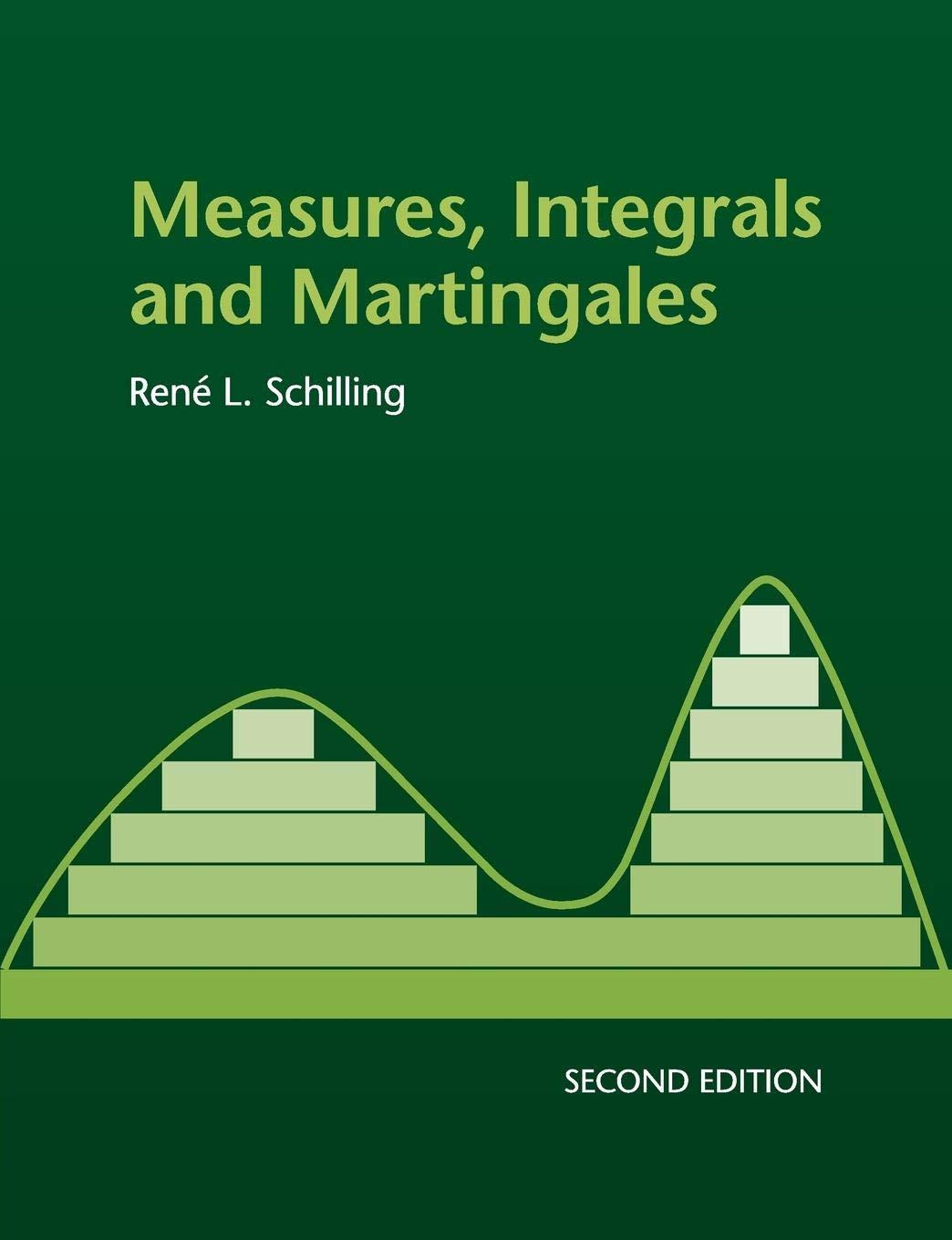Let ((Omega, mathscr{A}, mathbb{P})) be a probability space, i.e. a measure space such that (mathbb{P}(Omega)=1). Show that
Question:
Let \((\Omega, \mathscr{A}, \mathbb{P})\) be a probability space, i.e. a measure space such that \(\mathbb{P}(\Omega)=1\). Show that for a measurable function \(T: \Omega ightarrow[0, \infty)\) and every \(\lambda>0\) the following formula holds:
\[
\int e^{-\lambda T} d \mathbb{P}=1-\lambda \int_{0}^{\infty} e^{-\lambda s} \mathbb{P}(T \geqslant s) d s
\]
What happens if we also allow negative values of \(\lambda\) ?
Fantastic news! We've Found the answer you've been seeking!
Step by Step Answer:
Related Book For 

Question Posted:





